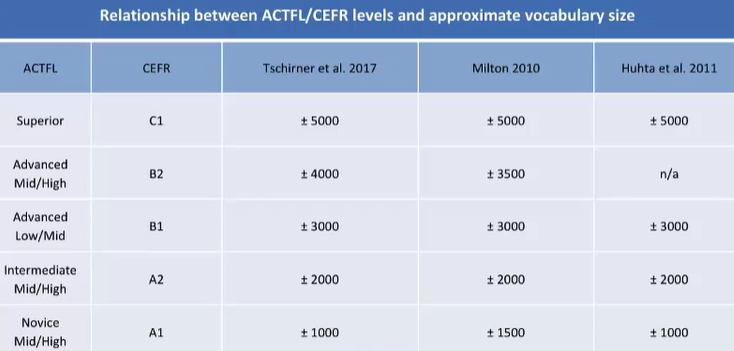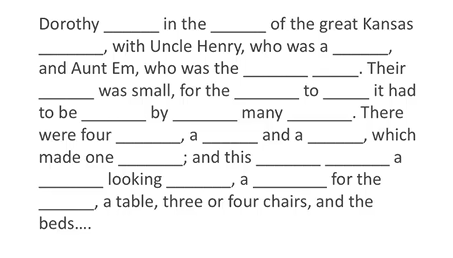To memorize vocab or not to memorize vocab? Posted by meaghan on Mar 31, 2021 in For Learners, Pedagogy
To memorize or not to memorize, that is… not even a question. You’ve gotta do it.
Language proficiency is much more than just vocab, but you can’t follow a conversation or understand the news in the language without enough vocab to back you up.
Join us on April 9th to hear our favorite methods for making vocab memorization less of a slog–and how the CL-150 can help.
Not convinced of the power of vocab? Read on below.
Words matter.
Bottom line: you can’t attain advanced proficiency without grammar and pragmatics, but nothing drives proficiency gains faster than building vocabulary (especially for beginners).
All four skills (listening, speaking, reading, and writing) require vocabulary. For example, vocabulary has been shown to account for up to 72% of the variance in reading scores among language learners[1]. Another meta-analysis of many language-related studies found strong correlations between vocab size and reading comprehension[2].
This is probably confirmed many times over by your own experiences trying to use and understand your target language. You know how disruptive it is to try to read or listening to something and be missing a few crucial words or phrases.
Authenticity matters.
Don’t believe the myth that explicit and purposeful vocab study is somehow inconsistent with the principles of communicative learning.
But by “explicit and purposeful” vocab study, we don’t mean endless textbook vocabulary lists. We encourage you to learn vocabulary in the wild, through authentic sources like news articles, podcasts, songs, literature, social media, and beyond. (That’s why CL-150 Cohort weekly lesson streams pull exclusively from authentic sources and native speaker audio.)
Authentic sources provide an opportunity for real-world, “scenario-driven” vocabulary learning. Our brains don’t organize vocabulary into semantic lists like “colors” and “numbers”—they organize it into situations like “rainy day”, which might include a bunch of topically-related nouns, verbs, adjectives, and expressions: puddle, torrential, umbrella, to rain cats and dogs, etc. Scenario-driven learning mirrors how vocabulary gets stored in our brains, making it easier to then apply that vocab to conversations in the real world or in classroom activities.
Interaction and repetition matter.
Ok, ok, you get it, vocab is important!
But vocabulary is not learned incidentally. Doing lots of reading or listening exposes you to a lot of contextualized learning, but for beginner or even intermediate learners of a language, that context isn’t sufficient if you don’t know enough of the surrounding vocabulary.
One study found that readers need to know 98% of the words in a text to comfortably read and understand it[3]. Here’s what a passage from The Wizard of Oz looks like with almost 30% of the vocabulary blanked out:
Unless you’re a very advanced learner, you can’t expect to read or hear a word in context and just use context clues to figure it out like you might in your native language.
So what can you do to learn vocab that’s fast, fun, and effective?
Before you make a big stack of flashcards, we have some ideas for you!
Join Bridgette (former teacher and member of our Engagement team) to explore her favorite methods to make explicit vocab learning fun and effective—no index cards required. Stop by for a 30-minute discussion and get well on your way to building vocabulary (and your proficiency!)
[1] Stæhr, L. S. (2008). Vocabulary size and the skills of listening, reading and writing. Language Learning Journal, 36(2), 139-152.
[2] Milton, J., & Alexiou, T. (2010). Developing a vocabulary size test for Greek as a foreign language
[3] Nation, I. S. P. (2001). Learning vocabulary in another language.




